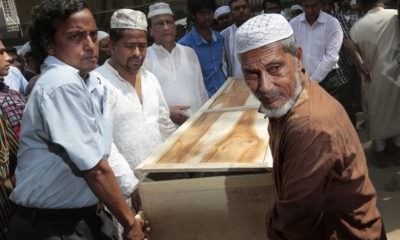Culture
Bangladesh police arrest banned Islamist outfit member in Gay activist’s death
Amidst massive criticism from all sections of the society towards Bangladesh government’s inability to act upon the terrorist groups, who have successfully maintained terror by a string of brutal murders over the past few years, Bangladesh police on Sunday arrested a Islamic militant from a banned terror group over the hacking to death of the country’s first gay magazine editor and his friend.
On April 25, Xulhaz Mannan, 35-year old editor of a magazine for Bangladesh’s gay and lesbian community, and his 25-year-old fellow activist Mahbub Tonoy were hacked to death in an apartment by up to seven attackers carrying machetes and guns.
The attack was claimed by al-Qaeda in the Indian subcontinent. The Bangladesh police, however, have arrested Shariful Islam alias Shihab from Kushtia. The Bangladeshi government has denied that Islamic State (ISIS) or al Qaeda have a presence in the country.
Monirul Islam, chief of counter-terrorism unit of Dhaka Metropolitan Police (DMP) told reporters at a press conference, “He is a member of the banned Ansarullah Bangla Team.”
Shariful confessed during interrogation that he had been a member of another banned Islamist outfit Harkat-ul-Jihad al-Islami, Bangladesh (Huji) before he joined Ansarullah Bangla Team.
Islam told media, “They killed the gay rights activists because they were creating confusion about Islam.”
Bangladesh has seen a series of attacks over the past year in which atheist bloggers, academics, religious minorities and foreign aid workers have been killed. The latest victim was an elderly Buddhist monk, who was found hacked to death on May 14 at a temple in a remote region of southeastern Bangladesh.
The ISIS militants have even claimed responsibility for some of the attacks that included the killing of two foreigners late last year. Police, however, state them as false claims and say home-grown militant groups are behind the recent attacks.
The Western security experts have now enough reasons to doubt of any direct operational links between ISIS based in the Middle East, and militants operating on the ground in Bangladesh.





































